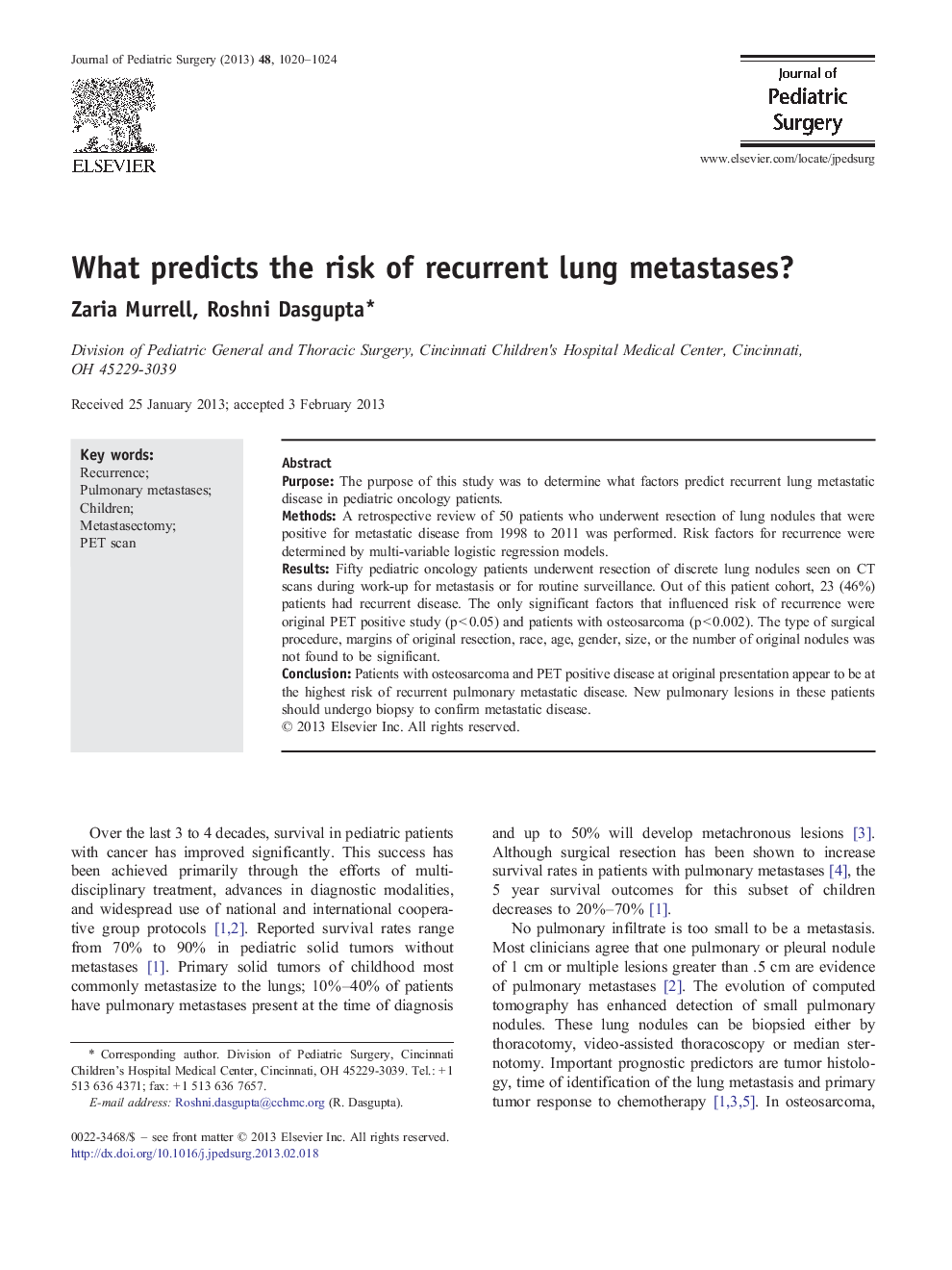| Article ID | Journal | Published Year | Pages | File Type |
|---|---|---|---|---|
| 4156186 | Journal of Pediatric Surgery | 2013 | 5 Pages |
PurposeThe purpose of this study was to determine what factors predict recurrent lung metastatic disease in pediatric oncology patients.MethodsA retrospective review of 50 patients who underwent resection of lung nodules that were positive for metastatic disease from 1998 to 2011 was performed. Risk factors for recurrence were determined by multi-variable logistic regression models.ResultsFifty pediatric oncology patients underwent resection of discrete lung nodules seen on CT scans during work-up for metastasis or for routine surveillance. Out of this patient cohort, 23 (46%) patients had recurrent disease. The only significant factors that influenced risk of recurrence were original PET positive study (p < 0.05) and patients with osteosarcoma (p < 0.002). The type of surgical procedure, margins of original resection, race, age, gender, size, or the number of original nodules was not found to be significant.ConclusionPatients with osteosarcoma and PET positive disease at original presentation appear to be at the highest risk of recurrent pulmonary metastatic disease. New pulmonary lesions in these patients should undergo biopsy to confirm metastatic disease.
